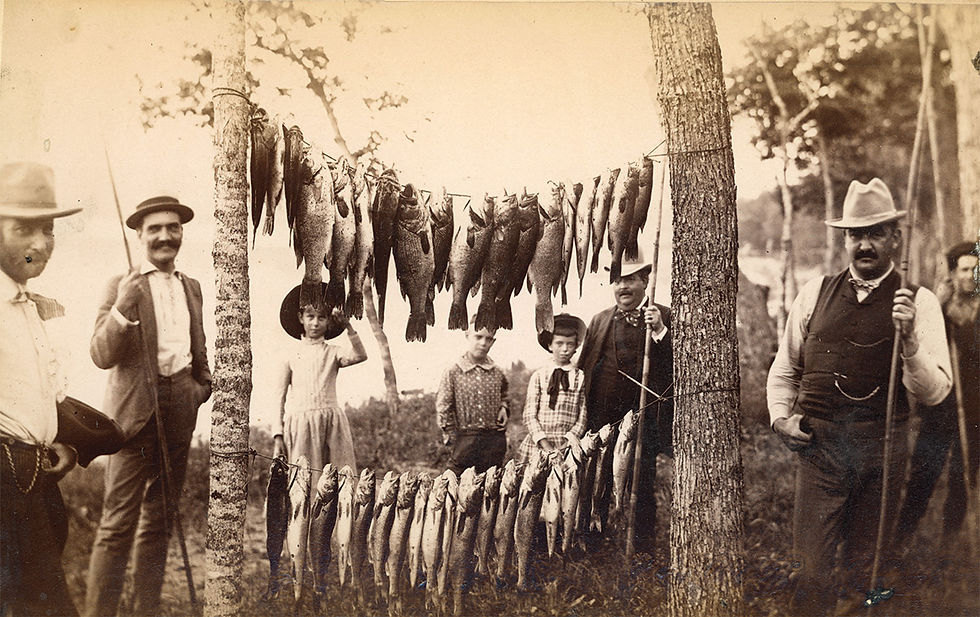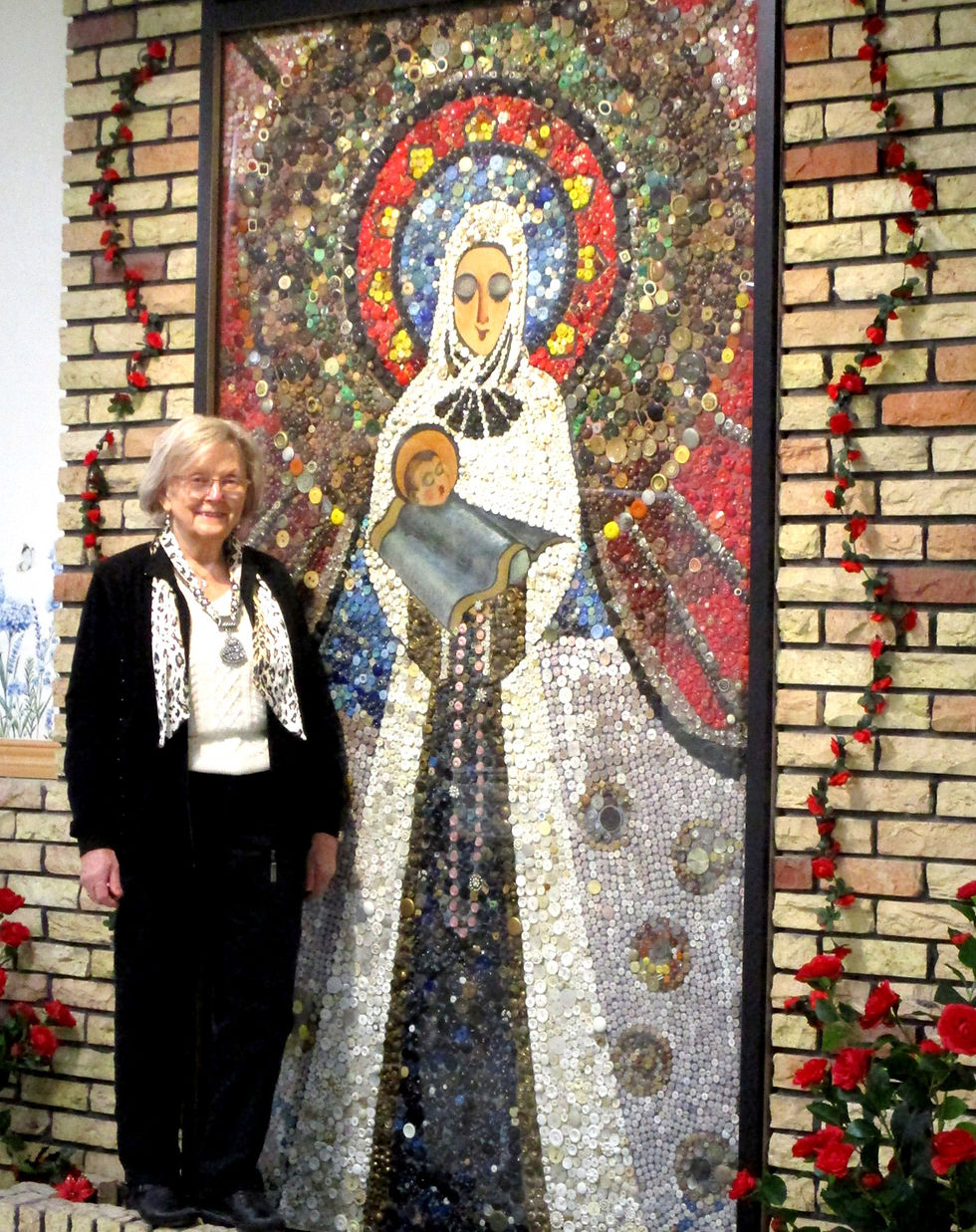Hard days in Korea
- Sr Perspective

- Nov 1, 2024
- 6 min read
Farm boy from Echo served during Korean War
By Patricia Buschette

Duane Arthur Ose of Redwood Falls, Minn. (formerly Buffalo Lake, Minn.) has lived a life filled with a wide range of experiences and a desire to learn about the world. Ose
learned a lot and had many new experiences in his early 20s by serving the Army during the Korean War.
Duane was born in Granite Falls, Minn. and raised on the family farm near Echo, Minn. He graduated from Echo High School in 1960. His father wanted him to remain on the farm. Duane had his own ideas about his future.“If I am drafted, I will be fodder for the meat market,” he said. “I will be in the meat grinder. I want to enlist and learn technology so I won’t get shot at.”
At 20 years of age, he went through basic training at Fort Leonard Wood, Missouri, and advanced engineering at Fort Belvoir in Virginia. “I learned how to run generators and hydraulics at missile bases,” he explained.
During this training, Duane not only became familiar with technology, he dealt with the Army’s intention that soldiers should learn to eat as Koreans do. “They fed us rice – it was like wallpaper paste. I would die if I had to eat this stuff,” he said with obvious distaste, quickly adding, “Koreans know how to cook rice.”
Duane described his early days in Korea. “When I got to Korea, there were no trees and a lot of orphans. I played baseball and hop scotch with them. The girls wore red and blue,” he remembered.
“Here is an exciting thing,” Duane said in anticipation of telling a story. “Two nights a week, a warrant officer and I would go to a big school house in the village where students, members of the Republic of Korea (ROK) Army, and civilians would gather. The warrant officer and I would write simple short English sentences on the black board. We would ask who wanted to read the sentence. A little girl in the front row had a bright smile as she read the sentence. I enthusiastically told her that she read it very, very good. She lit up like a Christmas tree, ran up to the front and hugged me. She then hurried back to take her place,” he said, the pleasure of the experience, clear in his memory.

“At the DMZ I could explore and see battlegrounds with remaining land mines and mortar shells. Women would make money as they collected pieces of shrapnel that were sold for cast iron. Unfortunately, at times there was a click and it would explode. Some lost arms in the process when grenades and mines exploded,” he said.
Duane was an E4 Power Plant Specialist and Section Chief for the missile site located 200 miles north of Seoul on the DMZ. While the Korean War had officially ended July of 1953, conflict remained. The People’s Republic of China and the Soviet Union supported North Korea. The area remained a dangerous experience.
Duane supplied power for the HAWK (Homing All the Way Killer), a medium-range, surface-to-air missile that uses a radar homing guidance system to destroy aircraft and other airborne threats. Small missiles took down fighter planes.
“We saw a Chinese MiG come in with its red star, carrying napalm bombs. It was close – I could have taken out the pilot. I told headquarters there was a plane hedgehopping and coming toward us,” Duane said. “Hedgehopping means to fly close to the ground and then rise over obstacles. We had orders not to fire unless fired upon. We were ready to fire, but we did not.”
Duane, whose job was to keep equipment in running order, said, “We had 16 men, always ready to do the job. Other batteries weren’t prepared. I was always ready, because farm life trained you to do the job right.”
But not everyone appreciated the workload.
“I was confronted by one of the men in a dark alley. He said ‘You are a SOB! You are working us too hard!’ I talked to him nice and quiet. I had to calm him down and get him to relax. I realized I was working them too hard,” Duane said.
Duane went on to explain that the soldier had tried to kill his own father. The judge gave him the choice of Army, or imprisonment, so he joined the Army.
“I went to the Headquarters at Camp Page and explained to an officer what was going on. I made my way back and then got a call from the Captain at Delta Battery 75th Artillery. He wanted to meet with me in his quarters,” Duane said.

“Ose, I didn’t think you would be the one complaining,” he said, and then added, “We will get more men because of your complaining.”
“We needed rest. We were working long hours,” Duane said, and then thoughtfully added, “The men loved me and I loved them. We were up to our eyeballs. We captured infiltrators sneaking in on us. They were North Koreans, dressed in black, trying to see what we were doing.
“We captured four . . . not all at one time. They would sneak in at night and get caught in the sickle wire. When this happened, we would hear the explosion. Infiltrators learned to sneak in during daylight when they were able to see the wire, to avoid getting caught,” he said. “One day I put everyone off duty to have dinner, stood over the section I was running, and looked over the vastness of Korea. I saw an infiltrator at the guard house. He watched for the right time. Under cover, he ran across the road. I watched his progress. He would come up to look as he ran. I went into the generator building and looked through a crack in the door. He proceeded to make a dash. I called out ‘Chung chow’ that means halt. He made a gesture that he didn’t have weapons. I called the duty officer and dog handler.”
They proceeded to arrest him, “We cuffed his hands behind him, put a black leather strap around his neck, tethered him and asked questions. The Battery First Sergeant had a 45 pushed into the infiltrator’s ear,” he said.
Because of the way the infiltrator responded to conversation, it was determined that he understood English.

“Oh, he does, does he?” The sergeant said, and put a round in the chamber.
“We ducked to get out of the way,” Duane said in anticipation of an unpleasant outcome. “The guy fell to the ground, shaking and trembling. The ROK Army was called. They learned that he was going south to kill President Park, return north and sabotage the US Army. We thwarted that effort.”
“I got an award. I was given access to Cheong Wa Dae, the Presidential residence, known as the Blue House,” Duane said. “I was given the honor of being a part of the changing of the guard at the 5,000 year old palace.” During the ceremony, Duane wore a Junlip, a hat made of a felt-like material worn by military officials and soldiers.
“Civilians were taking pictures,” he said, remembering the honor. “I stood trying not to blink with cameras in my face. It was an honorable occasion.”
It is mandatory for Korean civilians to serve two years – they serve in the ROK Army, responsible for ground-based warfare and were attached to the US Army. “One of these – Bumwook Kim became my best friend. I called him BW. He served with the US Army taking care of power plants.
“In 2009 I returned to Seoul to visit him, flying to what was Kimpo Air Base. The U.S. Air Force base closed in the 1970s and is now part of Kimpo International Airport in Seoul.”

During his visit, Duane learned that BW was now president of Samsung in Korea. BW took him to his big office complex. “One evening when we were visiting, he asked me, ‘What do you think of the TV? I made that.’”
“BW caters to helping people,” Duane said. He often hires people with physical disabilities.
Duane’s return home meant continued exploration and adventures. After his discharge, he lived in a dugout in Alaska, and received the last homesteaders permit granted in the United States. It took him and his new wife Rena nine years to build a log house. Rena died of atherosclerosis in May of 2020.
Duane returned to Minnesota, content in his memories. “I enjoy life tremendously, but I wasn’t for this waste of life of war,” he said with resolve. “We shouldn’t have entered the war. People make money from war. And some don’t care about lives. We could have settled it at the table,” he said with certainty, adding “I enjoyed my job tremendously and the people around.”




Comments